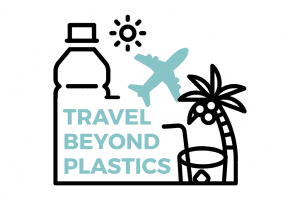Skift Take
We're drowning in press releases about global hotel companies promising to reduce their reliance on single-use plastics. Most of these items require alternatives though, so what are they?
 Travel Beyond Plastics is a groundbreaking new Skift series about the travel industry’s addiction to plastics and what happens when companies and travelers try to kick this unsustainable habit.
Travel Beyond Plastics is a groundbreaking new Skift series about the travel industry’s addiction to plastics and what happens when companies and travelers try to kick this unsustainable habit.
Accor is the latest major hotel company to double down on reducing plastic waste, specifically by pledging this week to eliminate all single-use plastics as part of the guest experience — in guest rooms, meeting areas, restaurants, and leisure activity areas — by the end of 2022. This does not cover back-of-house waste.
Accor is in good company, having followed similar single-use plastics vows by industry giants like IHG, Hyatt, and Marriott, most of whose self-imposed deadlines have yet to arrive.
But here’s the problem with promises.
Promises are unenforceable and the public forgets about them as soon as the news cycle moves on — Edition Hotels is an outlier in honorably admitting that it failed to eliminate single-use plastics by its deadline. PR motivation to keep the promise is high, but financial motivation is low, because moving away from famously cheap plastics tends to cost more money, not less as some might suggest. Most of these products need replacements, some way to convey things like soap to the guest, so they can’t just be stricken from the budget.
And here’s the problem with focusing on single-use plastics: The devil might be in multiuse items.
This means instead of one use, you’re supposed to get more. Maybe it’s designed for two uses, maybe 20. Maybe it’s designed for years of continuous use but in reality only gets used five times, or never. How much environmental credit does that buy us?
Many hotels are swapping tiny plastic toiletry bottles for larger ones that last longer, but if they’re not refillable, they end up in the landfill quickly enough. Refillable dispensers can last longer, but it’s harder for hotels to commit to these because it takes time and money to clean and fill them.
Multiuse water bottles are a favorite among companies, but any frequent traveler or conference attendee can show you a mountain of these branded annoyances in the back of their closet, and they’re going to get thrown out. I even saw a hotel in Houston, Texas, offer a tower of empty single-use plastic water bottles, suggesting that guests reuse them, which some would argue is unsanitary.
What about glass? Glass is an option, easy enough for drinking water in the guest room, but it’s a hassle in other areas, and hospitality is not about hassling people.
I once had a canvas toiletry bag filled with lemongrass-scented products in glass bottles, given to me by hotel staff visiting from Cambodia, and I’ll tell you what happened. It sat at my desk in the newsroom for months because it was so heavy I didn’t want to tote it home. When I finally did, I damn near shattered a bottle in my shower because handling smooth glass with soapy hands is a real test of patience. Much of the product remained stuck in the bottles because you can’t squeeze glass, you can only whack it against the butt of your hand until you bruise. I’ll be the first to admit I gave up, rinsed the bottles, and recycled them.
What about biodegradable plastics? They sound great, but their ability to break down over time is in serious question.
And biodegradable non-plastics, like edible straws or paper straws? A lot of people hate those. I can’t even count the number of times I’ve been at some cocktail bar, anywhere from San Diego to Miami, hearing someone throw a minor tantrum about a mushy straw ruining their drink.
We’re still at the beginning of this journey: Accor said in its press release only that “relevant alternatives to plastic will be proposed for each specific item.” Hotels have yet to really pour their energy into pinpointing multiuse items that work — work for the hotel’s budget and staff, work for the guest, and work for the environment.
The Ocean Conservancy’s chief scientist told Skift in 2019 that most environmental solutions involve a top-down mandate, meaning the government forces you to comply. So if the government isn’t being forceful enough, then the hotel industry should force itself.
Have a confidential tip for Skift? Get in touch
Tags: accor, climate change, plastics, travel beyond plastics
Photo credit: Shown here is Sequana Tower, Accor corporate headquarters in Issy-les-Moulineaux, France. Accor has joined hotel chains IHG, Hyatt, Marriott with its pledge to eliminate single-use plastics by the end of 2022. Accor
